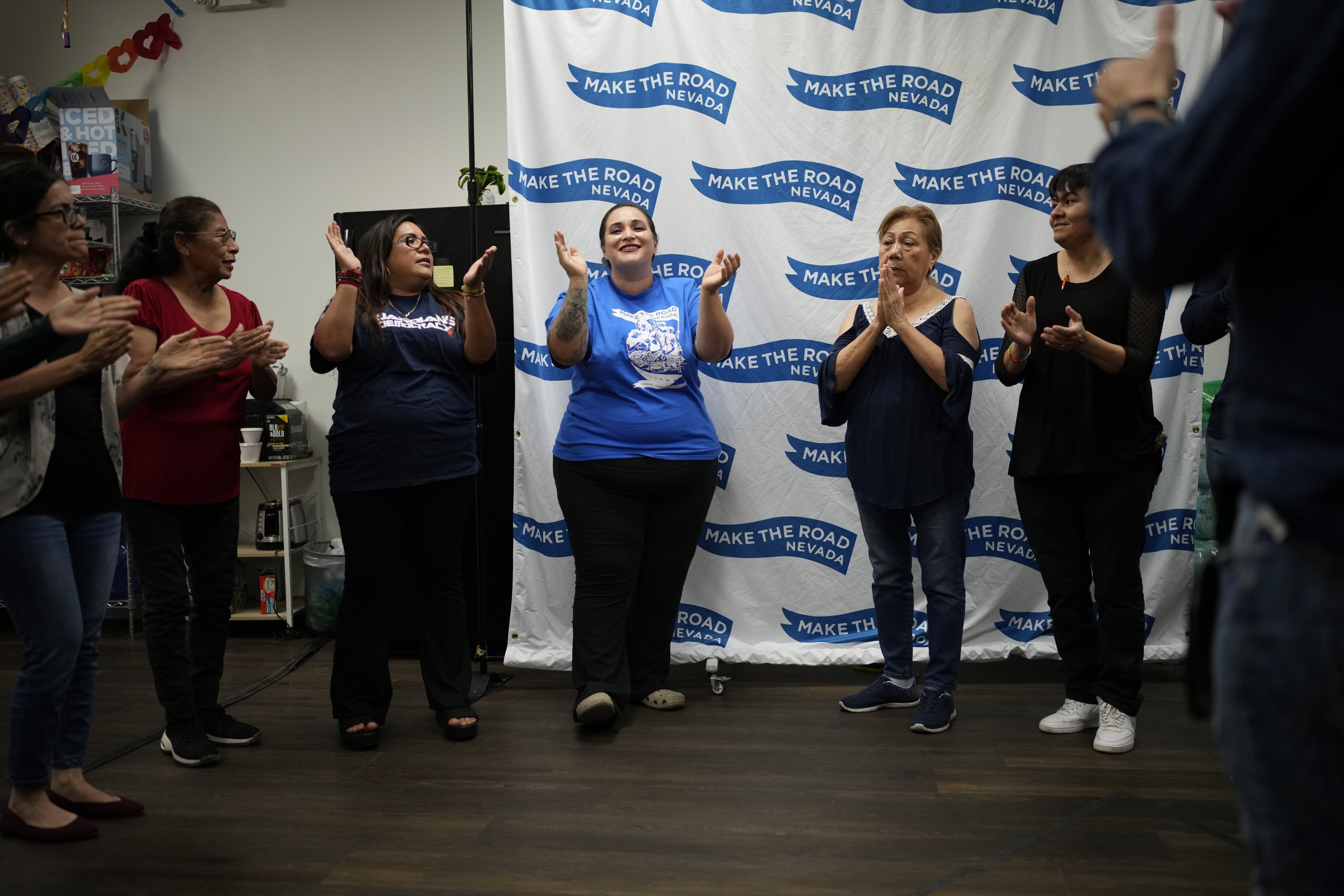[ad_1]
Janille and Tom Baker’s ranch, with its cattle, desert landscape and snow-capped mountains, embodies the essence of America.
The only challenge? Finding American workers to staff it.
The ranch in remote eastern Nevada produces around 10,000 tons of hay annually, and combines cowboy culture with a dash of Manifest Destiny. Rabbits, gophers and the occasional badger always outnumber humans and the nighttime sky is dark enough to count the stars.
However, the Bakers’ business couldn’t survive without an agricultural guest worker program that brings in Mexican immigrants for about nine months a year to help harvest crops in fields where temperatures frequently exceed 100 degrees Fahrenheit (37.8 degrees Celsius).
“When people complain that foreign workers are taking their jobs, I roll my eyes,” said Janille Baker, who manages the ranch’s accounting. “In any industry, everybody’s trying to find help. So this anti-immigration stance doesn’t really make sense to me. If everyone needs workers, how are you planning to fill those jobs?”
The ranch follows federal rules that require advertising available positions and making them available first to U.S. citizens. But in the last six years, only two Americans called to inquire about jobs. A third trekked out in person, but left after seeing what the work entailed.
Collateral risk
Immigration has become a source of fright and frustration for voters in this presidential election – with possible outcomes that could take the United States down two dramatically different paths. Nowhere are the stakes higher than in Nevada, where 19% of residents are foreign-born and around 9% of the total workforce doesn’t have U.S. legal status.
The influx of illegal border crossings has strained city and state resources across the nation, even in Democratic strongholds. And yet immigration has fueled job growth in ways that strengthen the economy and improve the federal government’s fiscal health.
So black and white in the candidates’ rhetoric, immigration is actually incredibly complex in reality – a fact that reveals itself every day in Nevada.
Voters say it is among their most important issues in November. How they come down on immigration, choosing former President Donald Trump’s hard-line proposals for mass deportations or Vice President Kamala Harris’ calls for a path to citizenship for millions of people in the country illegally who have been here for years, will go a long way toward determining the outcome.
Nearly 300 miles or 480 kilometers south of Baker Ranch, neon-saturated Las Vegas had almost 41 million tourists visit last year and is seeing the issue of immigration play out differently, but with distinct parallels.
“There’s a lot of fear,” said Nancy Valenzuela, a 48-year-old maid who works at the Strat casino. “There are people who don’t have papers. They’re like, ‘They want to throw us all out.’”
Valenzuela plans to vote for Harris. But others can only watch and hope their way of life isn’t turned upside down. “We’re here, propping up the country so the economy doesn’t crash,” said Haydee Zetino, who scrubs lavish hotel suites at Harrah’s Casino on the famed Las Vegas strip. She is an immigrant from El Salvador with only temporary protected U.S. status and can’t vote.
If Trump deported all 11 million immigrants without legal status in the U.S., as he has suggested, the collateral risk could extend to the entire economy. Nevada’s job losses alone might nearly equal what it suffered during the 2008 financial crisis. More than 10% of Nevada’s population lives in homes with at least one immigrant in the country illegally, according to estimates from the advocacy group Fwd.us.
“In our wonderful, 24-hour economy, we know that these hotels and casinos could not, should not, would not be able to open every day without immigrants,” said Peter Guzman, president and CEO of the Latin Chamber of Commerce in Nevada.
Source

Emil Kovács graduated from the Journalism program at Eötvös Loránd University in Hungary. During his journalism studies, he focused on data journalism, investigative reporting, and multimedia storytelling. He gained experience by writing for the university’s student newspaper, where he gained attention for his articles on social issues. After graduation, Emil began working as a reporter at a European news agency, where he conducts in-depth analyses of international news and current events.



